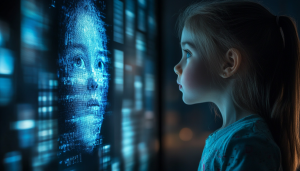U.S. prosecutors warn of rise in AI-powered child sexual abuse images

Federal prosecutors in the United States are renewing efforts to pursue suspects who use AI to create child sex abuse imagery.
The update comes as authorities fear the proliferation of advanced technology could significantly increase the volume of illicit material.
So far this year, the U.S. Justice Department has brought two cases against defendants accused of using generative AI to produce explicit images of minors.
James Silver, the head of the Justice Department’s Computer Crime and Intellectual Property Section, told Reuters he fears we are only seeing the tip of the iceberg.
“There’s more to come,” he said.
“What we’re concerned about is the normalization of this. AI makes it easier to generate these kinds of images, and the more that are out there, the more normalized this becomes.”
“That’s something that we really want to stymie and get in front of,” added Silver.
Across the Justice Department, there is a prevalent concern that advancing AI tools could contribute to cyberattacks, interference in elections, and add to the deception of crypto scams.
The Department was also warned by Google last week that its “radical and sweeping” antitrust lawsuit against the company could have “unintended consequences.”
More concerns have been expressed by child safety advocates, on the issue of AI systems enabling offenders to manipulate ordinary images of children into illegal, sexualized content.
The ambiguity created by the tech also makes it more difficult for the real victims of abuse to be identified and assisted.
Yiota Souras, the chief legal officer for the National Center for Missing and Exploited Children, indicated the nonprofit group receives an average of around 450 reports each month related to generative AI.
Extent of the challenge to combat child abuse imageryUnfortunately, this represents just a fraction of the estimated 3 million monthly reports on online child abuse that the group received in 2023, overall.
A major challenge in the battle against the creation of abuse imagery is the uncharted legal ground.
Difficulties arise when an identifiable child is not depicted, but in this case, existing obscenity offenses can be leveled when child pornography laws are invalid.
Earlier this year, Human Rights Watch warned that Brazilian children’s photos are being ‘illegally used to train AI’.
Even on obscenity grounds, there is a vague grey area around exclusively AI-generated imagery as was evidenced in 2002, when the U.S. Supreme Court deemed a federal law as unconstitutional.
It sought to criminalize any imagery, including AI-powered content, appearing to show children involved in sexual activity.
Image credit: Via Abite
The post U.S. prosecutors warn of rise in AI-powered child sexual abuse images appeared first on ReadWrite.
